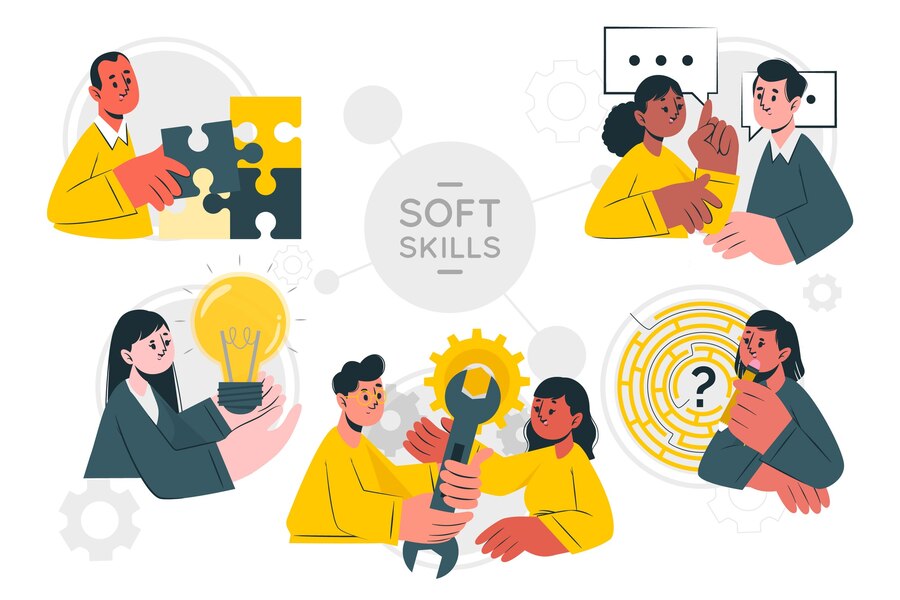Career advice that was previously thought to be applicable is no longer applicable due to the ever-changing nature of the employment market. In order to remain competitive in today’s unstable employment market, millennials are already honing their abilities, while Generation Z is preparing to offer a new viewpoint on the workplace. Because of the intense competition, outdated career advice needs to be updated for the modern era. Let’s examine the top five career tips that are no longer relevant in today’s era.
5 career tips that are no longer relevant in today’s era

1. Stay at the Same Job as Long as You Can
In many respects, changing jobs has become the new norm. One in five workers willingly switched companies in 2020, and one in four workers were considering a shift in 2021, according to data from IBM’s Institute for Business Value.
This Great Resignation is being fueled in part by tangible advantages. Despite inflation, 60% of workers who changed employment between April 2021 and March 2022 reported higher actual earnings than they did in the same month the year before, according to Pew Research. Additionally, there is less motivation to stay in a particular position for an extended period of time due to the collapse of traditional pensions. These are the most common career tips that are no longer relevant in today’s era.
2. Avoid Resume Gaps
Companies are increasingly searching for strategies to draw in top talent since the labor market is still a candidate’s market, meaning there are more opportunities than there are people to fill them. These initiatives translate into increased pay packages in some industries, but in a bid to attract Gen Z and millennial employees, businesses are also reassessing work-life balance and implementing new perks related to mental health and wellbeing.
Hiring managers and recruiters have also grown more cautious of resume gaps as a result of this tendency.
3. Keep Your Resume to One Page
If you are an entry-level applicant, it is customary to have a one-page resume, but as your experience increases, so may your resume.
In order to pass the screening machines, Shannon explains, “most professionals need space to describe their experience, add their accomplishments, describe their personality, and match 70% of the job description’s keywords.” It is nearly impossible to accomplish all of that effectively on a single page.
4. Soft Skills Won’t Make a Difference
Soft skills, or non-technical abilities like communication, flexibility, and critical thinking, might really make the difference in landing a job if you’re an intern or entry-level candidate with little to no experience. In this instance, companies prioritize hiring candidates with transferable experience that will be useful for the role.
However, when you begin to advance up the corporate organizational charts, soft skills are equally essential.
According to Kathy Hinkle, a recruiter at software business Sentient Digital, Inc., “I especially look for candidates who can be both leaders and team players, and whose flexibility allows them to wear many hats.” “Even though these abilities may have been undervalued in the past, that perspective is out of date, and we need workers who bring these abilities to the contemporary workplace.”
Soft skills are the most important in today’s era, highlighting how many career tips that are no longer relevant need to be re-evaluated.
5. Wear a Suit to Your Job Interview
The days of having to dress formally for every interview are long gone.
According to Aaron Case, career advisor and Certified Professional Resume Writer (CPRW) of Resume Genius, “dressing up could actually make you seem like a bad fit for the job if you’re applying for a job in a non-formal industry, like a sound tech job for a touring rock band.” “Just don’t wear shorts and a T-shirt to a business job interview, and if you’re ever unsure, send the hiring manager an email to find out if there’s a dress code.”
6. Hide Your Weaknesses
Employers now sincerely want to know about your flaws if they inquire about them during an interview.
“No one expects you to be flawless, and being a little honest with interviewers demonstrates that you’re not a narcissist who is blind to your own shortcomings,” Case adds.
Employers are searching for indications that you want to learn and develop, so it’s still a skill to talk openly about your areas of potential. Acknowledging weakness when asked about it in an interview is crucial. However, it’s important to frame your weakness in a way that highlights your strength. Hiding weaknesses in an interview is one of the career tips that are no longer relevant in today’s era.
Conclusion

In order to remain competitive in the current unstable employment market, millennials are putting a lot of effort into honing their talents, while Generation Z is preparing to offer a new viewpoint on the workplace. Because of the intense competition, professionals must replace outdated career advice with strategies that suit the modern era.
If you want to know more about such career tips that are no longer relevant in today’s era or interview tips, then feel free to avail EnrichMyCareer for a FREE 15-minute call with us.
Visit EnrichMyCareer for more information.
Frequently Asked Questions
1. Can I change my career at 25?
At 25, you have the benefit of both job experience and the freedom to change and grow.
2. Can I change my career later in life?
Not only is it feasible to start a new job in your 40s, but it’s growing more and more popular. Many successful job changers choose to start over in their professional lives for the following reasons: Discovering genuine passion: Many people discover after years of employment that they seek work that truly fulfills them and aligns with their beliefs.
3. At what age is late to start a career?
If you have the appropriate tactics, it’s probably never too late to make a job move. Don’t give up if you’re in your 30s, 40s, or 50s.

A content writer with a passion for crafting engaging content. Dedicated to continuous learning and innovative, excels at adapting diverse writing styles.



